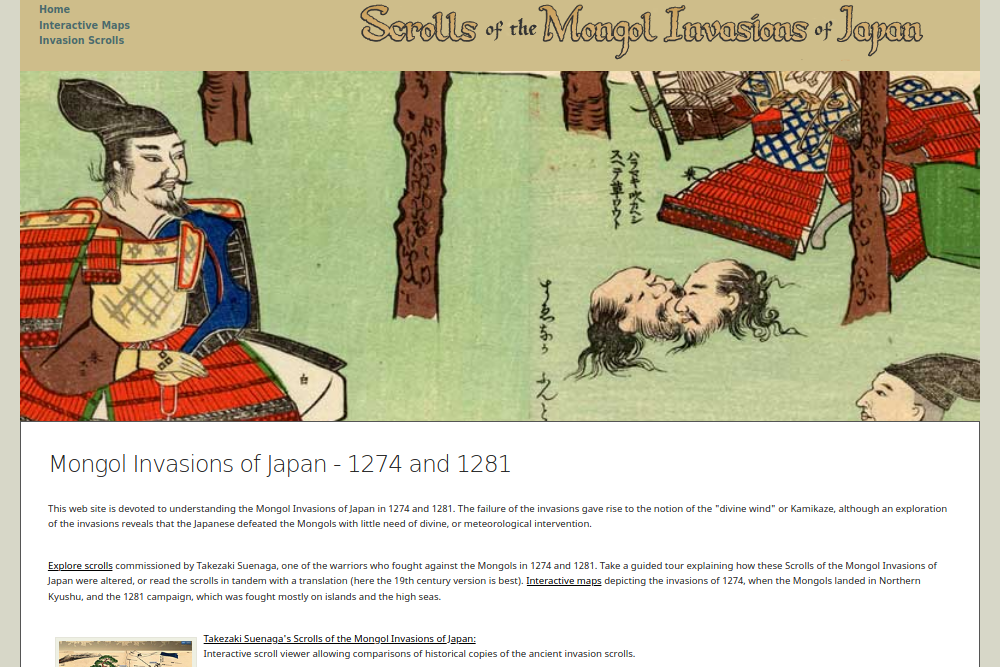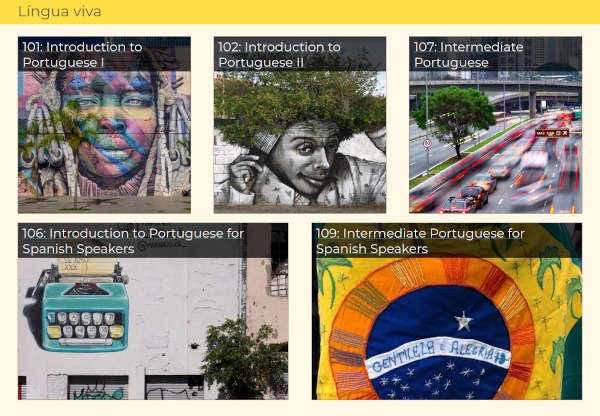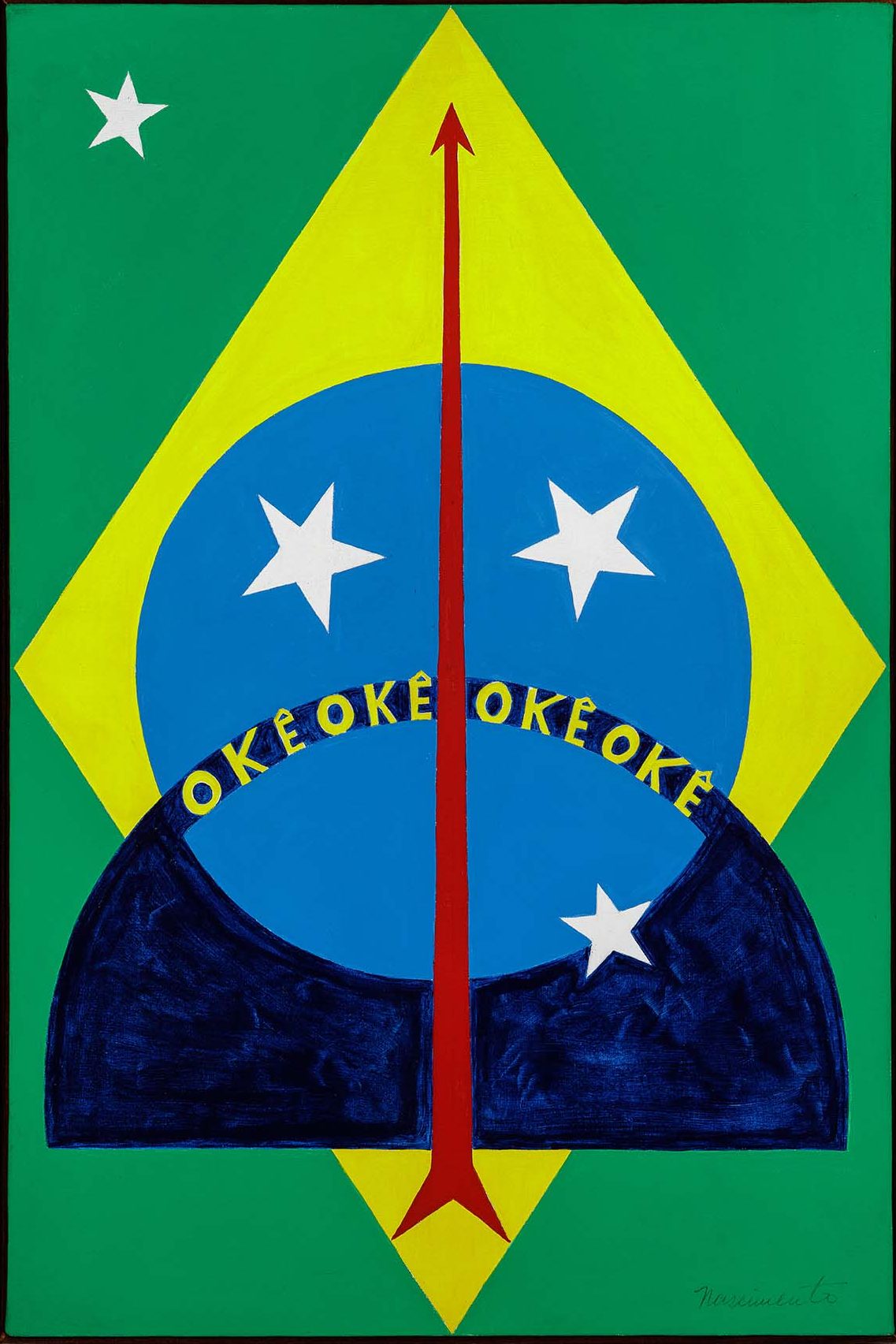The Scrolls of the Mongol Invasions of Japan website is a re-development of several projects developed by Professor Tom Conlan in Princeton Department of East Asian Studies, devoted to understanding the Mongol Invasions of Japan in 1274 and 1281. The failure of the invasions gave rise to the notion of the “divine wind” or Kamikaze, although an exploration of the invasions reveals that the Japanese defeated the Mongols with little need of divine, or meteorological intervention. The website invites users to explore and compare four different scrolls depicting the Mongol invasions of Japan and provides videos of the events around the invasions of 1274 and 1281.
The project builds upon several Flash-based projects developed by Professor Conlan at Bowdoin College. This current project, a collaboration with Ben Johnston from the McGraw Center for Teaching and Learning, takes advantage or IIIF image technologies and the OpenSeaDragon Image Viewer.










